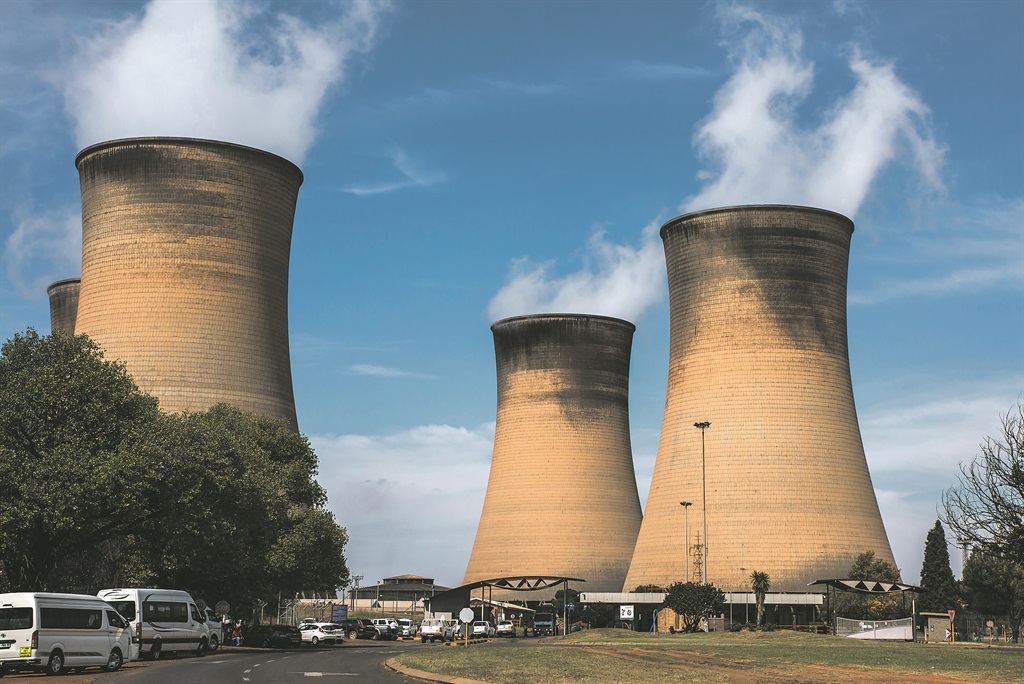
The mining industry in South Africa is a long way from being ready to survive without coal-generated electricity, the Minerals Council SA (MCSA) has said.
South Africa’s electricity crisis, the impact of the climate crisis and the necessity for sustainable, environmentally friendly mining practices were the main talking points at the Investing in African Mining Indaba, which was held in Cape Town this week.
In his opening address at the indaba, Mineral Resources and Energy Minister Gwede Mantashe said that South Africa’s Integrated Resource Plan looks at coal playing a smaller role in South Africa’s energy mix, and that it would comprise 60% or less of the mix by 2030.
The MCSA, which represents the leading mining companies in the country, emphasised during a press conference that the move away from coal would have to be gradual because coal-fired power stations remain necessary for baseload power provision.
At present, renewable energy, such as solar and wind power, cannot provide the kind of certainty energy-intensive users in the mining industry require.
Roger Baxter, the CEO of the MCSA, said the organisation was in favour of a “just transition” from coal to cleaner, more environmentally friendly energy.
“When we refer to a just transition, we mean that there are technical, social and economic grounds for a gradual move away from coal, rather than an immediate one.”
Billions have already been spent on South Africa’s two newest power stations, Medupi and Kusile, and it would be economically crippling to simply close them down.
During a panel discussion about the future of mining in South Africa, Henk Langenhoven, the MCSA’s chief economist, said shutting the power stations would be like having “two cars in the garage and then having to buy a new one”.
He said the most important thing now was to have energy certainty.
Tycho Möncks, managing director and partner at Boston Consulting Group, said it was often not that easy for companies to cut their dependence on coal.
“Yes, renewable energy is wonderful, but it requires major investment in capacity in respect of the national electricity network,” he said.
Möncks said renewable energy required sufficient energy storage capacity, making it unrealistic to rely entirely on renewable energy in the foreseeable future.
Referring to Mantashe’s recent statement that government would not stand in the way of mining companies that wanted to generate their own electricity, the MCSA noted that it would be a long time before the companies would be able to make their own power.
Mantashe said his department would amend legislation regulating energy generation so that electricity could be generated privately, however, he made it clear that his announcement was about generating power for own use, and not feeding it back to the national grid. He said nothing was stopping mining houses from generating their own power.
“Many say they want to do it, but where are the projects? Talk is cheap, action is expensive,” Mantashe said.
Other challenges the mining sector faces in South Africa, after load shedding and unclear legislation, are crime and protest action.
Mining companies said they were concerned about a recent wave of armed robberies, especially at gold mines and processing plants, and the lack of decisive intervention by the police.
Bloomberg reported that a gang armed with AK-47 and R6 assault rifles stormed a smelting works at the South Deep mine in Westonaria outside Johannesburg in December, plundering gold worth R7.4 million. It was one of 19 robberies last year in which more than 100kg of gold was stolen.
In the six months to June last year, 300 protests had been recorded in Burgersfort, Limpopo. This was up from 158 during the entire previous year.
In April 2018, six mine workers at the Driekop chrome mine, just outside Burgersfort, burnt to death in a bus after protesters threw a petrol bomb at it.
Alex Khumalo, head of social services at the MCSA, said that communities often protested against poor service delivery and a lack of infrastructure, but they took their grievances to the mines instead of the local municipalities.
Protest action in mining communities is often incited by politicians and even by aggrieved businesses that do not have the community’s best interests at heart.
Many of the individuals hiding behind these protests allegedly attempt to obtain concessions from the mines, which they hope to draw personal benefit from.
Another prominent issue discussed during the indaba was the negligence of mining companies in respect of the communities where mining takes place, including the impact on the environment and the social consequences when a mine shuts down operations.
Deshnee Naidoo, CEO of Vedanta’s zinc mine activities, said rehabilitation and restoration must be part of everyday mining practices.
South African mines are required to put finances aside for when their mines close their doors. This requirement was partly put in place in reaction to 100 years of mining activity that has been harmful to the environment, including acid mine drainage and uranium pollution.
Niks Lesufi, head of environment, health and legacy at the MCSA, said the plan the council had presented to the department of water and sanitation to find a solution for acid mine drainage was not accepted, and a new framework would be released within the next six months, this time to Environment, Forestry and Fisheries Minister Barbara Creecy.
* City Press previously reported that Deshnee Govender is the CEO of Vedanta’s zinc mine activities. It should be Deshnee Naidoo. City Press regrets the error.




 Publications
Publications
 Partners
Partners









